
Earlier today I did a post about the relationship of suffering to art and the power of art to convince. The example of powerful art I used was the work of Wilfred Owen whose poetry* speaks of the horrors of war. Tonight I was watching an excellent program on PBS called Power of Art and under discussion was Picasso's Guernica. At the end of this program, the narrator reveals something I already knew but had not yet profoundly felt. I Googled "Guernica" and found the same information on Wikipedia:
"A tapestry copy of Picasso's Guernica is displayed on the wall of the United Nations building in New York City, at the entrance to the Security Council room. It was placed there as a reminder of the horrors of war. Commissioned and donated by Nelson Rockefeller, it is not quite as monochromatic as the original, using several shades of brown. On February 5, 2003 a large blue curtain was placed to cover this work, so that it would not be visible in the background when Colin Powell and John Negroponte gave press conferences at the United Nations. On the following day, it was claimed that the curtain was placed there at the request of television news crews, who had complained that the wild lines and screaming figures made for a bad backdrop, and that a horse's hindquarters appeared just above the faces of any speakers. Diplomats, however, told journalists that the Bush Administration pressured UN officials to cover the tapestry, rather than have it in the background while Powell or other U.S. diplomats argued for war on Iraq. [9]"
Picasso was not at Guernica when the bombings occurred; however it is believed that he put a good deal of his personal anguish into the painting.
The relationship of suffering to art is complicated, but it is increasingly evident to me how important art is. Sometimes, suffering needs to be on display. Art helps us to connect to the suffering of others. Clearly, Picasso's Guernica represents "an inconvenient truth" about how war causes human suffering.
_________________________________________
*Wilfred Owen's best known poem is "Dulce Et Decorum Est"
(I'm sorry I can't get the page breaks correct on this blog, so if you love the poem try to find a correct version of it)
DULCE ET DECORUM EST
Bent double, like old beggars under sacks,
Bent double, like old beggars under sacks,
Knock-kneed, coughing like hags, we
cursed through sludge, Till on the haunting flares
we turned our backs And towards our distant rest
began to trudge. Men marched asleep.
Many had lost their boots But limped on,
blood-shod. All went lame; all blind;
Drunk with fatigue; deaf even to the hoots
Of tired, outstripped
Five-Nines that dropped behind.
Gas! Gas! Quick, boys!
Gas! Gas! Quick, boys!
– An ecstasy of fumbling,
Fitting the clumsy helmets just
in time; But someone still was yelling
out and stumbling, And flound'ring
like a man in fire or lime . . .
Dim, through the misty panes
and thick green light, As
under a green sea, I saw him
drowning. In all my dreams,
before my helpless sight, He
plunges at me, guttering, choking,
drowning. If in some smothering
dreams you too
could pace Behind the
wagon that we
flung him in, And
watch the white eyes
writhing in his face, His hanging face, l
ike a devil's sick of sin; If you could hear,
at every jolt, the blood Come gargling from
the froth-corrupted lungs, Obscene as cancer,
bitter as the cud Of vile, incurable
sores on innocent tongues, My friend,
you would not tell with such high zest
To children ardent for some desperate glory,
The old Lie; Dulce et Decorum est Pro patria mori.



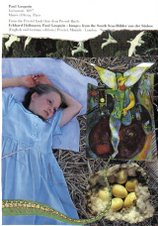


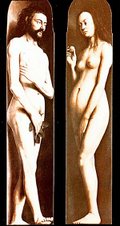

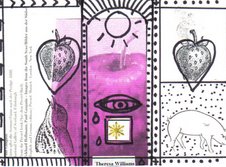
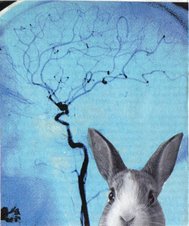
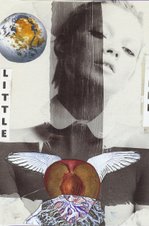
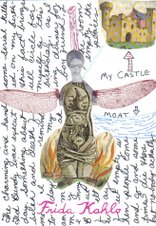
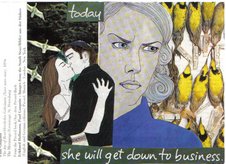

4 comments:
These last two posts are so very deep and true and wrenching. Love the poem, yet another poet I need to read! Thank you, Theresa. Teagrapple
P.S. A good book, nonfiction, if you want to read a journalist's experience of the early years of the war we instigated in Iraq, is "Imperial Life in the Emerald City, Inside Iraq's Green Zone" by Rajiv Chandrasekaran, Knopf, 2006. Too much cronyism, too much arrogance, and too much ignorance that led to unrealistic goals and ill conceived plans, coupled with a holier than thou attitude toward the Iraqis that doomed the mission from the start. Teagrapple.
I saw the Guernica on a trip to Spain during my study abroad in England... thank you so much for this post and all of its thought-provoking beauty. It is truly a gift to be shown ways to further appreciate art and the many ways in which I've been blessed to see so much of it.
The covering of Guernica has such profound implications. What an amazing metaphor for such a destructive ill conceived war. Ariel Dorfman manifested the disgust I feel for this act inhis poem "Pablo Picasso has words for Colin Powell from the other side of death." (http://sfgate.com/cgi-bin/article.cgi?file=/chronicle/archive/2003/03/09/IN201026.DTL)
I find it comforting in such an agitating way. Thank you for sharing your thoughts.
Post a Comment